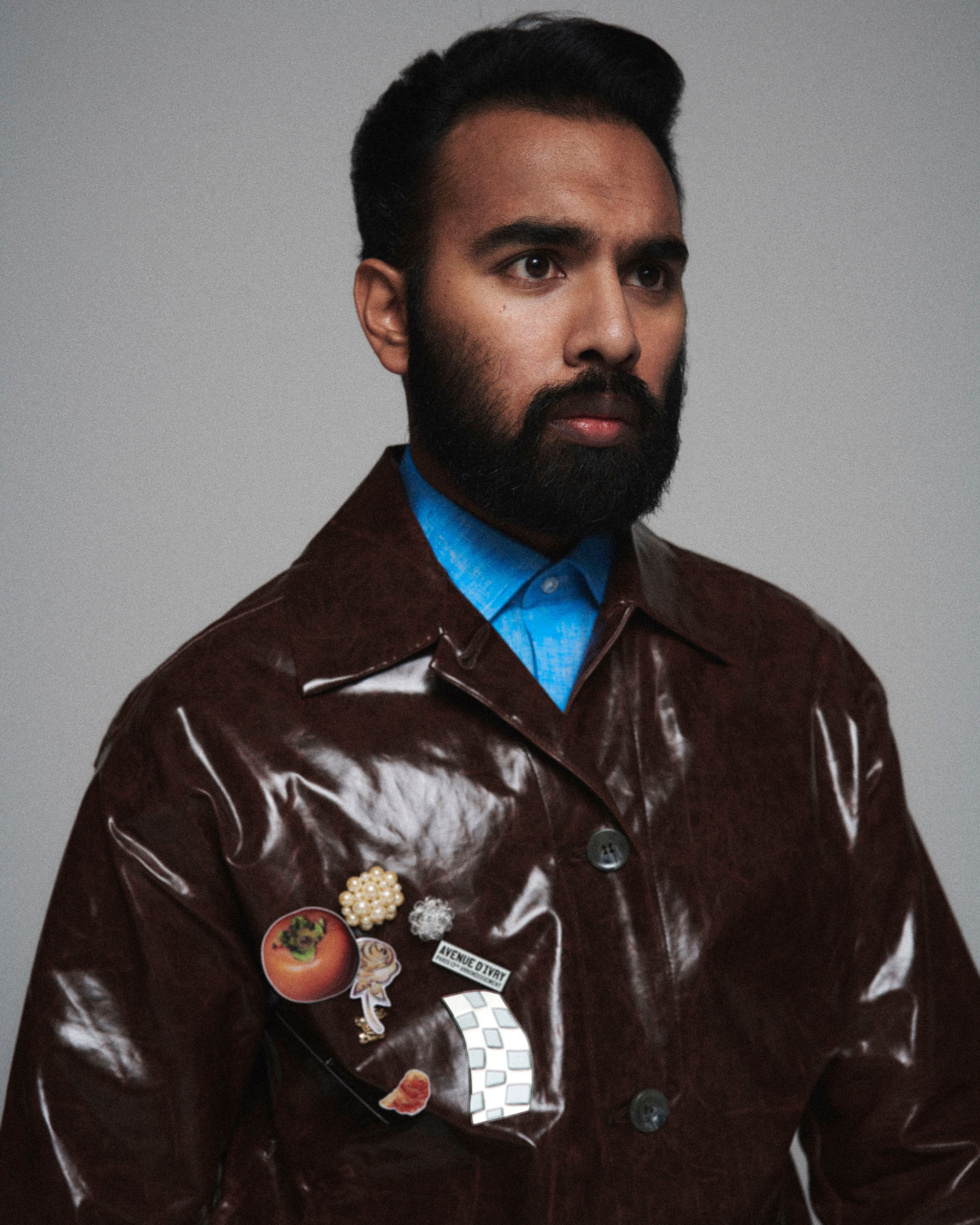
Jacket by Song for the Mute. Shirt by Emma Willis.
Finding Hope for Humanity with Himesh Patel
There’s a sincerity that comes through any time Himesh Patel is on screen; with his emotive stare and an earnest tone in his voice, he embodies the characteristics that mark this moment in time, trying to make sense of the increasingly complex world around him. Throughout his career, he’s had a knack for taking part in relevant and thought-provoking projects—now in the new post-apocalyptic HBO Max miniseries Station Eleven as well as Adam McKay’s ensemble satire Don’t Look Up—but it’s the way he carries himself that allows the characters he inhabits to feel real, and reflective of the world we live in.
“I think I was quite performative from a young age,“ the English actor recalls. “When I was nine or ten, I did a play in school and a teacher told my parents, ’He’s got a bit of a talent here,’ so they signed me up to a local youth theater.“ As he started becoming hooked, a fortuitous turn of events laid a path out before him: “I had a passion for it, I knew it was something that I enjoyed, and I guess just as I was formulating the thoughts as to how I might pursue it as a career, I got lucky and I did an audition for a soap in the UK called EastEnders.“ Patel got the role, playing Tamwar Masood for nine years, capturing the quiet but witty character amidst the family and relationship struggles that would ensue; his storyline quickly became a fan-favorite. “It changed my life,“ he recalls. “I was a professional actor from the age of sixteen.“
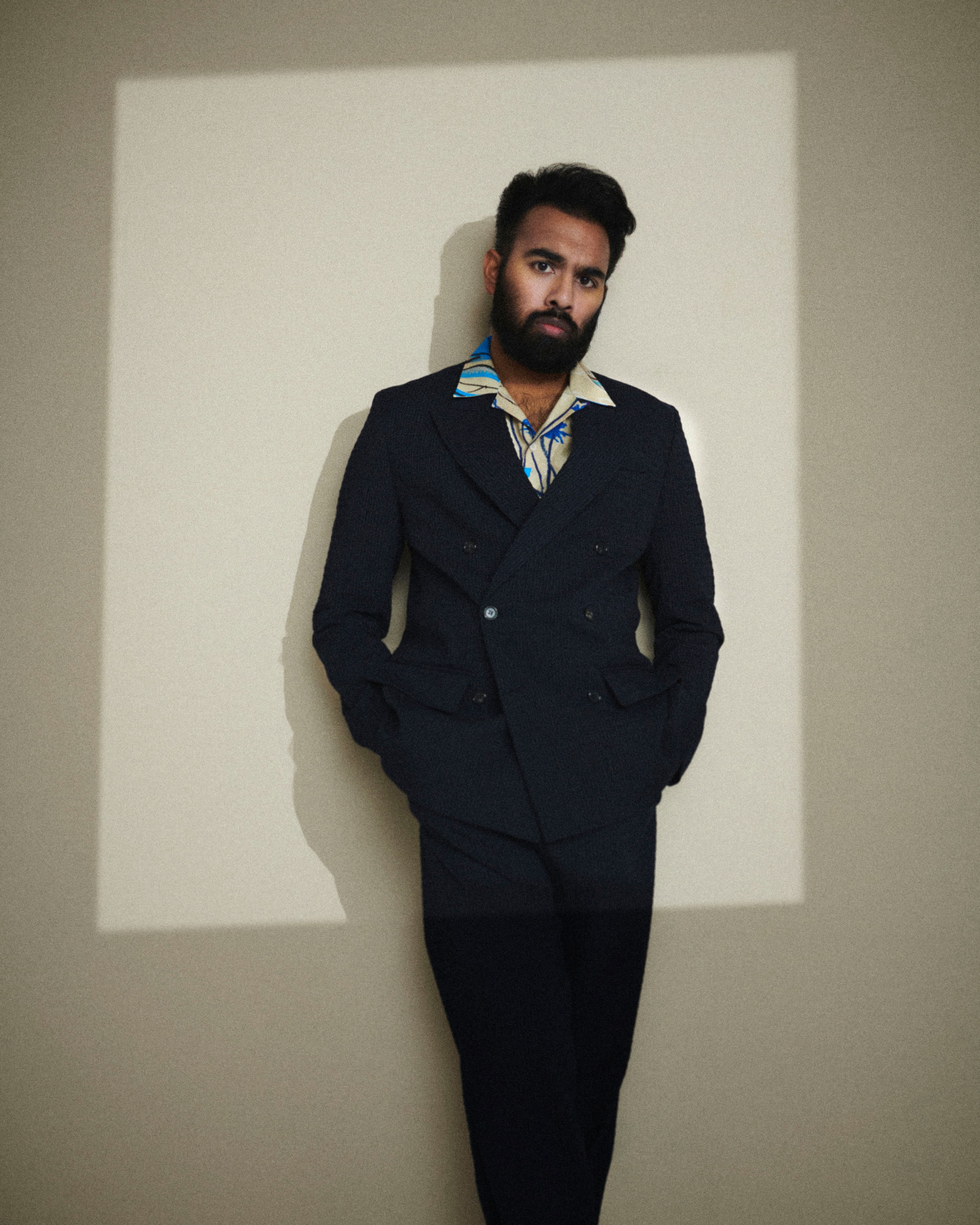
Suit by ADNYM. Shirt by Paul Smith.
Since then, Patel has been steadily moving between genres in both movies and television, all the while harboring his passion for theater as well. “I’ve never done anything on stage where I really got my teeth stuck into it in a big role,“ he says. “I want to, I really want to. It terrifies me but that’s why I want to do it. It’s great training as an actor.“ When his stint on EastEnders came to an end, it was a theater role that proved to be the challenge Patel needed. “One of my best friends is the founder of a theater group, they adapt novels into musicals,“ Patel says, referencing the withWings Theatre Company, which asked him to play a role in Le Bossu, an adaptation of The Hunchback of Notre Dame for the 2016 Edinburgh Fringe Festival. “It scared me,“ Patel recalls. “I played a pigeon and I played one of the bells of Notre Dame cathedral, it was just really funny and fun. It changed my life. I’d just left EastEnders at this point and needed something to scare me and push me out of my comfort zone, and it did that, and I met some very important people in my life.“
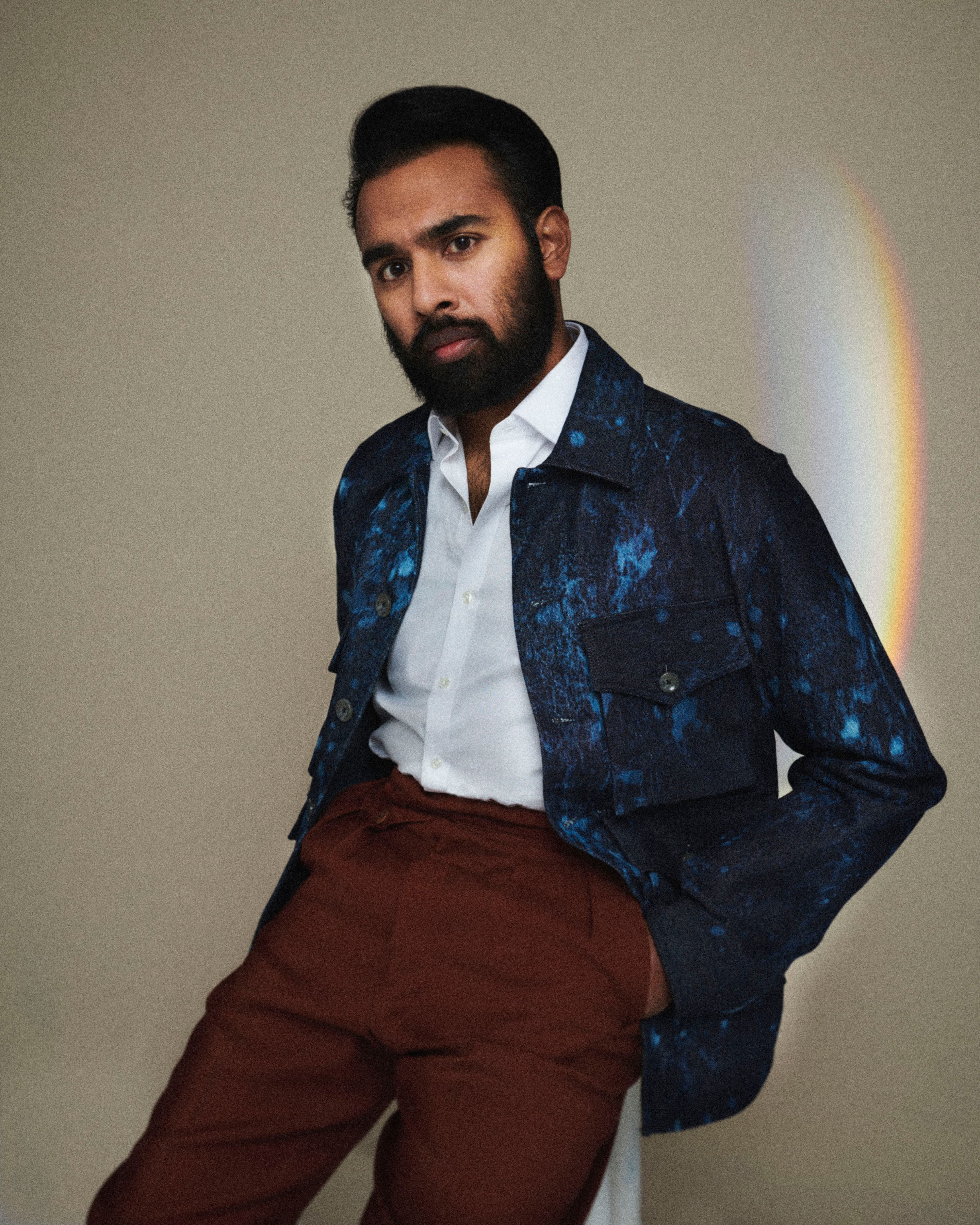
Jacket by Song for the Mute. Shirt by Emma Willis. Vintage pants from the Contemporary Wardrobe Collection.
Patel has continued to seek out challenges whether on stage or on screen, taking roles that push his range as an actor. His delivery is at once self-aware yet confident, allowing him to find success in both comedy and drama. Following his breakout film role as the lead in Danny Boyle’s Yesterday, his credits have included Christopher Nolan’s blockbuster film Tenet and Armando Iannucci’s latest HBO series, Avenue 5. Patel’s most recent role is in the ensemble, end-of-the-world comedy Don’t Look Up, a thinly veiled satire about our inability to address climate change despite the dire warnings scientists repeatedly emphasize. Patel’s appearance as Phillip is brief but memorable, with his character representing one of the pillars of modern society that director Adam McKay targets with biting wit: new media. Phillip starts out as the journalist boyfriend of the astronomist Kate Dibiasky (Jennifer Lawrence), but when she appears on national television and announces the discovery of an approaching comet in a fit of bewildered rage towards the blithe response to the Earth’s impending doom, he quickly uses her self-combustion as fodder for his own story. While the motives of all media are skewered in the film, Phillip embodies the more opportunistic and amoral side that emerged with digital media and the buzzworthy pieces they trade on.
The caustic story is McKay at his most urgent but also at his most bleak. Written with journalist David Sirota, Don’t Look Up posits a world in which everybody is too preoccupied with their self-interest to listen to warning signs—not exactly a far cry from the one we live in—but Patel, whose outspoken efforts on sustainability include the clothing he selects for red carpets and other press events, sees it as an optimistic call to action. “I wouldn’t like to guess what Adam is thinking,“ he offers. “He’s presenting to the world an idea of a great satire, but what I perceive him to be saying is, ’This is what’s going to happen if things carry on this way. Let’s make a choice so it doesn’t.“
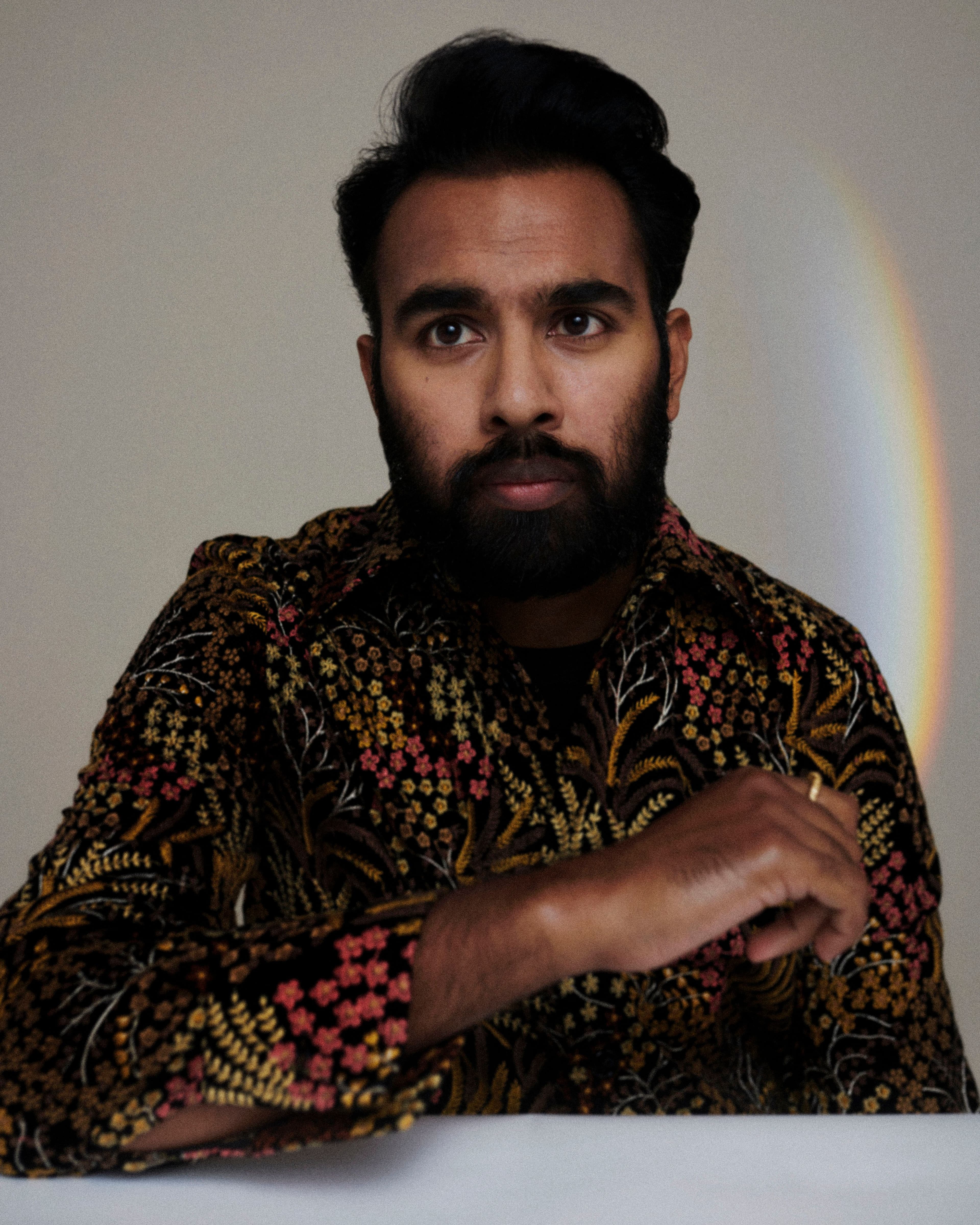
Shirt by Séfr. Vintage t-shirt by the Contemporary Wardrobe Collection. Ring by Completedworks.
Patel takes on a more prominent role opposite Mackenzie Davis in HBO’s new miniseries Station Eleven, based on the novel of the same name by Emily St. John Mandel. In its dystopian near-future, a fictional flu variant has wiped out a majority of the population; the story revolves around a handful of survivors who have adapted to their new reality and are seeking meaning in their lives through art. Though the book was written in 2014 and the pilot was greenlit in 2019, the irony of its release now isn’t lost on Patel. “We’re still living in the pandemic so it’s reflected in everything, but especially this of course,“ he adds. “For me, it is a story that’s taken on a prescience that we couldn’t have predicted.“
In the series, revolving around multiple, intertwined storylines, his character Jeevan learns of the impending pandemic early and, as he and his brother navigate their new reality, he begins to find a thread that connects him to others. “I think it’s, in a way, finding your meaning in the strangest time, that’s what happens with Jeevan,“ reflects Patel. “He doesn’t know who he is. Through struggling with his situation, and the situation he finds himself in when the world ends, I think he finds himself, eventually. He finds his own way to who he is. He’s kind of stripped of everything and that forces him to make a choice. I loved playing him, [he’s a] fascinating character.“
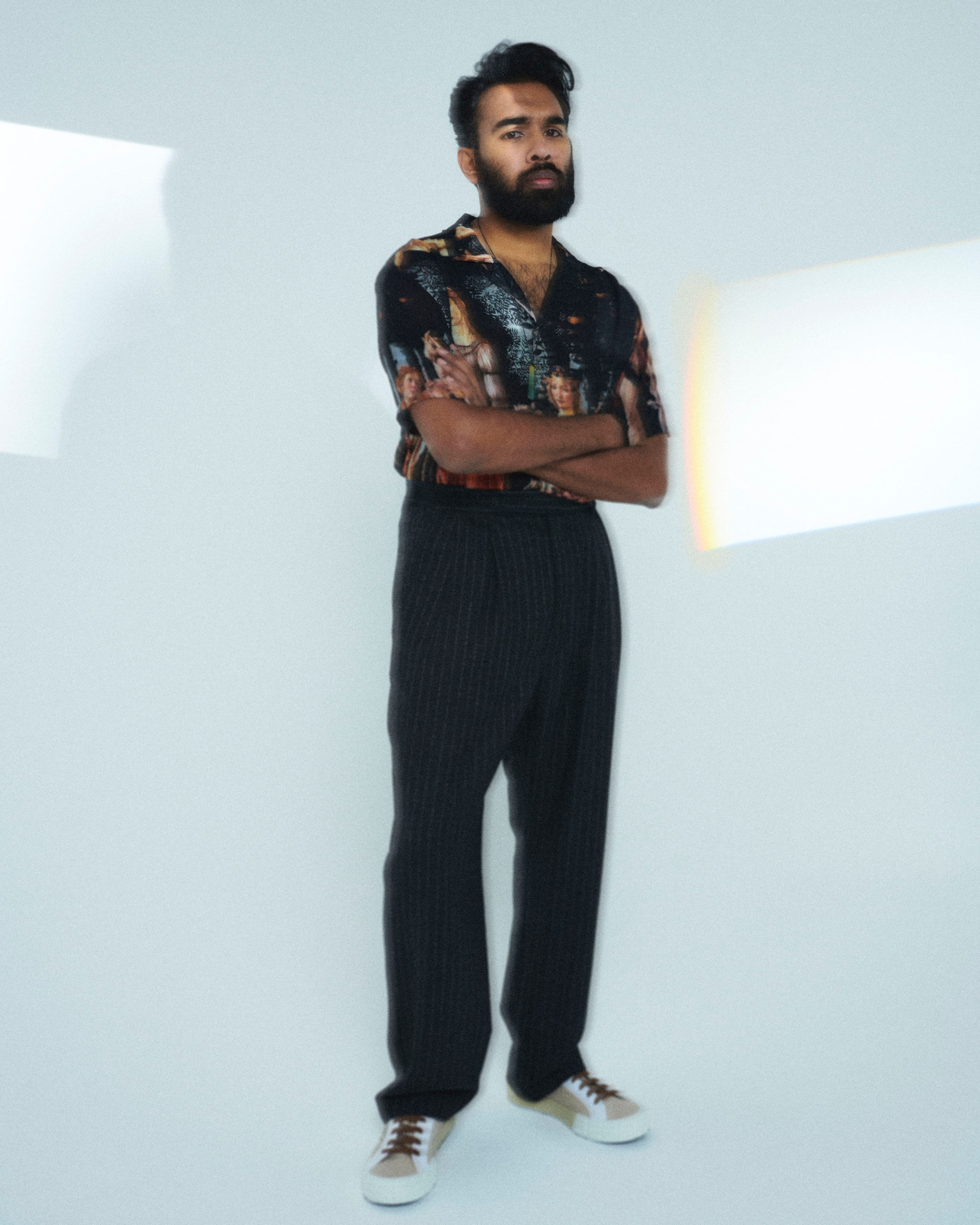
Vintage shirt from the Contemporary Wardrobe Collection. Pants by ADNYM. Sneakers by Prada. Necklace, Patel’s own.
Patel admits that many of these roles come to him by chance, and he didn’t intentionally seek out multiple end-of-the-world stories. But working within stories that so closely mimic the problems the world is currently facing is at the very least an effective way to come to terms with them. “There’s a sense of catharsis to doing acting of any sort. Being in the project is one way of doing it, but even just watching it,“ he says, quick to defer credit to the creators. “I think what makes writers so amazing is that they are able to conceptualize ideas and things and feelings and capture a sort of national tone or international tone that we’re hearing and distill it into a ten-part series or a two-and-a-half-hour movie. When you recognize that as a viewer, that’s the connection we have with art.“
Station Eleven is now streaming on HBO Max. Don’t Look Up is out now.
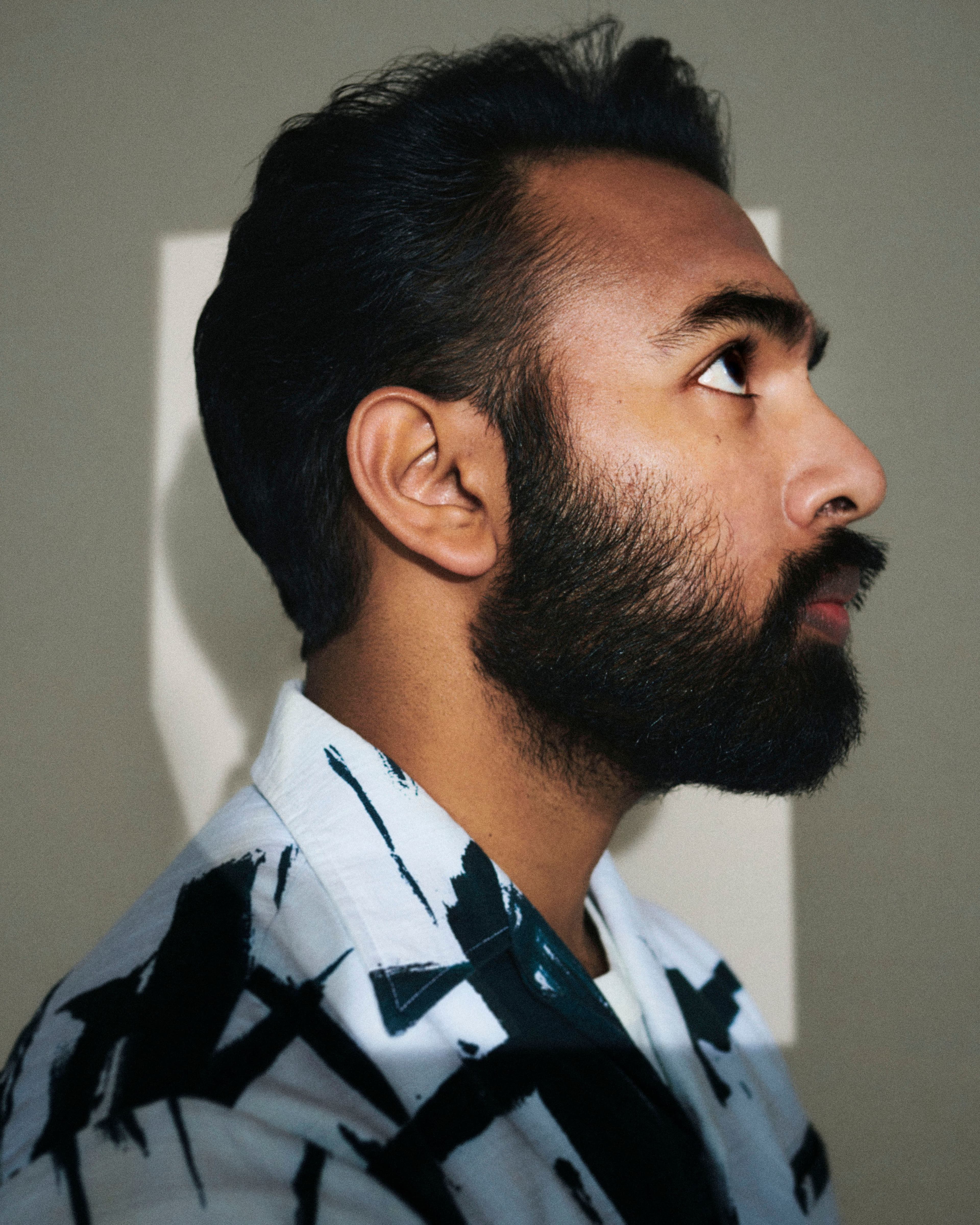
Vintage shirt from the Contemporary Wardrobe Collection. T-shirt by ADNYM.
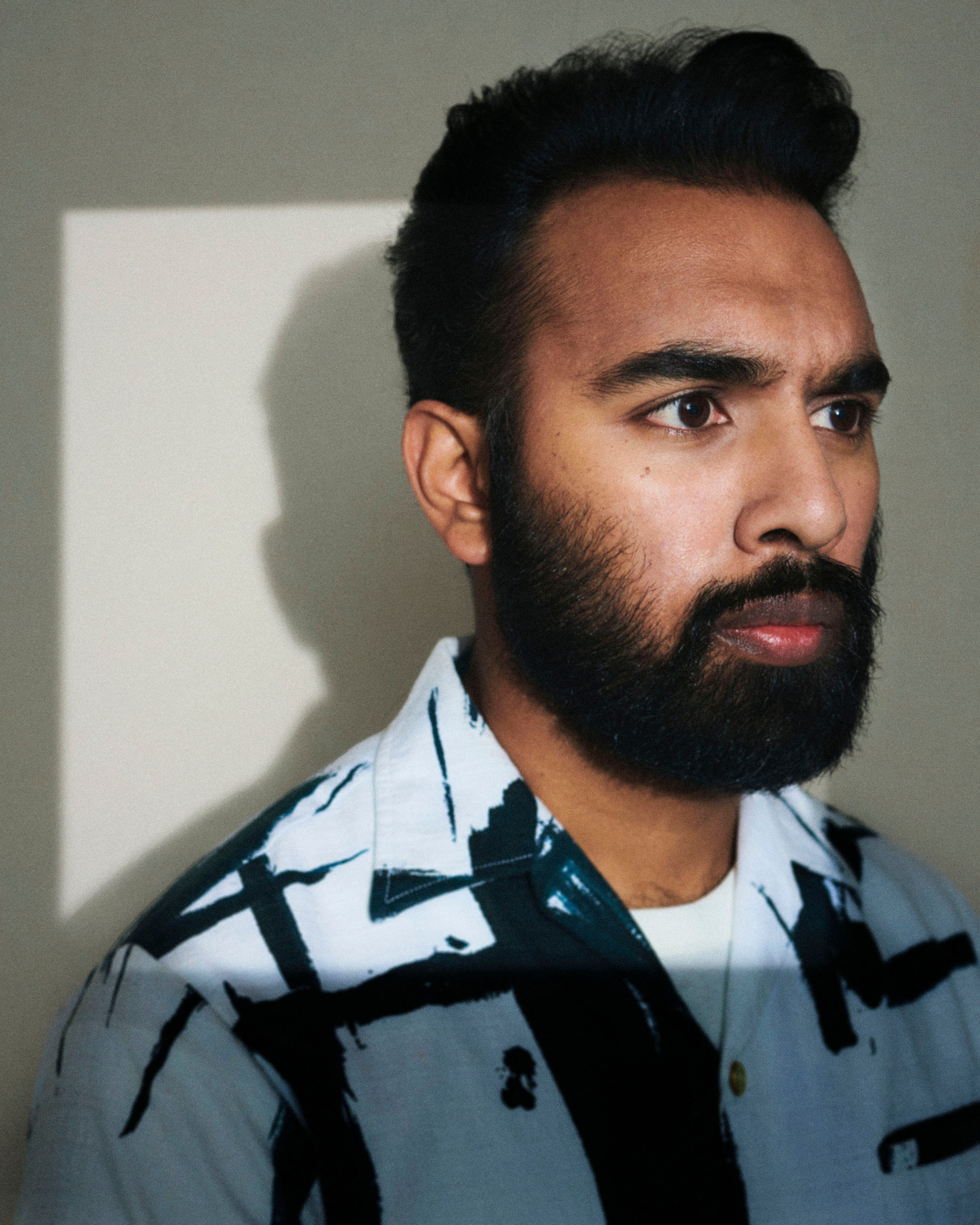
Vintage shirt from the Contemporary Wardrobe Collection. T-shirt by ADNYM.
As a nonprofit arts and culture publication dedicated to educating, inspiring, and uplifting creatives, Cero Magazine depends on your donations to create stories like these. Please support our work here.






